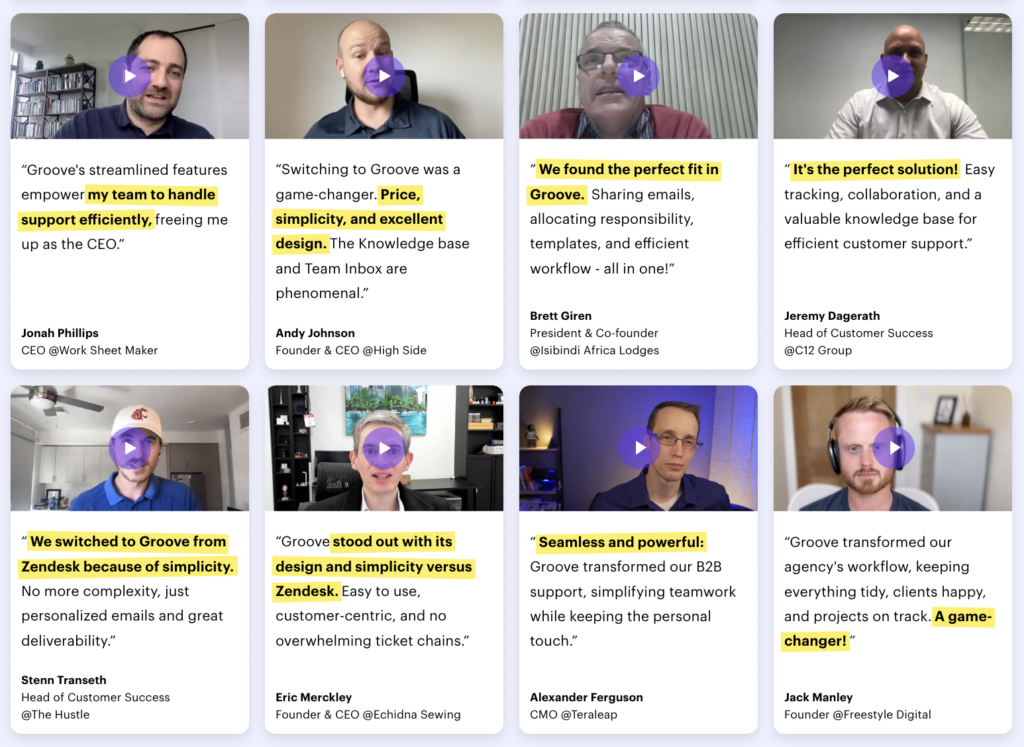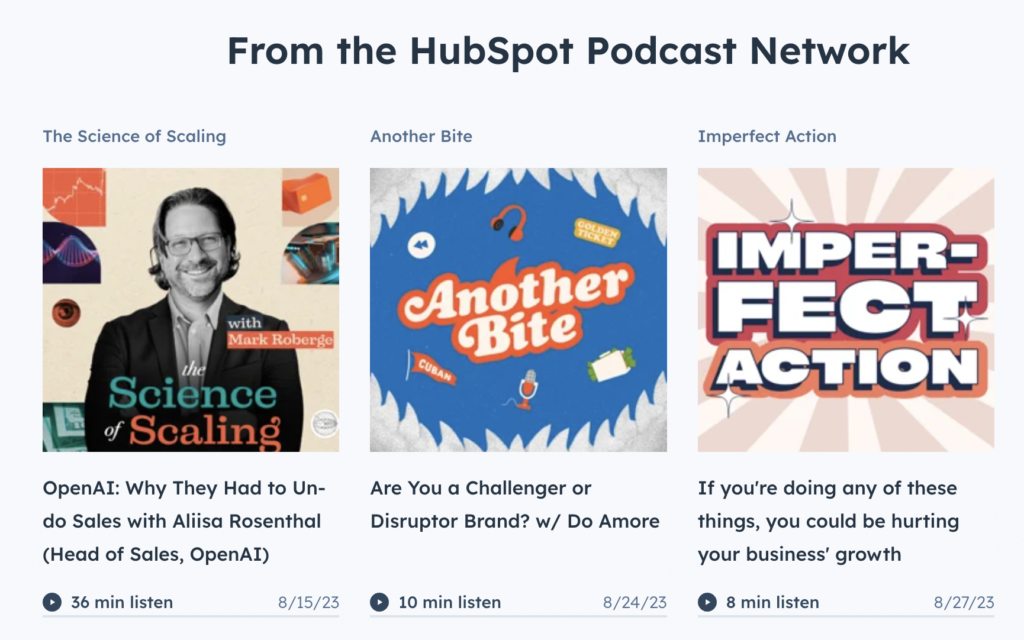As a small business owner, you may often find yourself grappling with limited resources and tight budgets when it comes to marketing your products or services. In a fast-paced digital landscape, finding cost-effective and impactful marketing strategies is crucial.
This is where content marketing comes into play. So, the question you might be asking is, “Is content marketing effective for small business?” Well, let’s delve into the subject and explore the potential benefits of content marketing for businesses like yours.
What is content marketing?
Content marketing is a strategic approach that focuses on creating and distributing valuable, relevant, and consistent content to attract and engage a specific target audience. It involves the creation of various forms of content such as blog posts, social media updates, videos, infographics, podcasts, and more.
The goal of content marketing is to provide value to your target audience, build brand awareness, establish credibility, and ultimately drive profitable customer action.
Is content marketing still important?
You may question is content marketing effective? And wonder if it is still important under rapidly evolving marketing trends, changes in consumer behavior, saturation of content, and the emergence of new strategies.
Truth is, in today’s digital age, where information is readily accessible at our fingertips, using content marketing to reach and engage with your target audience has become more important than ever.
Consider the following:
Increased consumer engagement
70% of consumers prefer to learn about a company through articles rather than traditional advertisements. This highlights the importance of providing valuable content that educates and engages your target audience.

Search engine optimization (SEO)
Content marketing plays a vital role in improving your website’s visibility in search engine results. In fact, HubSpot reports that companies that blog receive 97% more links to their website.
By consistently producing high-quality content, you increase the chances of :
- ranking higher on search engine result pages (SERPs)
- driving organic traffic to your website
- engaging and nurturing leads
- building a loyal audience

Building trust and credibility
Content marketing allows you to establish yourself as an industry expert and build trust with your audience. By providing helpful information, addressing pain points, and offering solutions, you can position your business as a reliable source of information and gain the trust of potential customers.
Is content marketing effective?
While content marketing results may not be as immediate as advertising, it offers long-term benefits. By consistently creating valuable content, you can build trust, establish authority, and cultivate an engaged audience, leading to sustainable growth, brand loyalty, and a strong online presence over time.
To answer the question “is content marketing effective” definitively, let’s look at some real-life examples and success stories from small businesses that have utilized the power of content marketing:
Blendtec: The power of viral videos
Blendtec, a small blender manufacturer, gained immense brand recognition and increased sales through their “Will It Blend?” video series. In these videos, they creatively blended various items like iPhones and golf balls to demonstrate the power of their blenders.
The entertaining and shareable content went viral, attracting millions of views and significantly boosting brand awareness. The success of Blendtec’s content marketing efforts resulted in a 700% increase in sales.
River pools and spas: Establishing authority through blogging
River Pools and Spas, a small pool installation company in the U.S., used content marketing to educate potential customers about pool maintenance, installation, and design.
They started a blog and consistently published high-quality articles addressing common questions and concerns. This not only positioned them as industry experts but also generated leads and increased customer trust.
The company’s blog became so successful that it drove over 1.2 million dollars in revenue within two years.

Groove: Transparency and customer success stories
Groove, a small help desk software company in San Francisco, prioritized transparency and customer success stories in their content marketing strategy. They openly shared their startup journey, including their failures and successes, on their blog.
By doing so, they built a passionate and engaged community around their brand. Their content marketing efforts helped them reach $5 million in annual recurring revenue, demonstrating the power of authenticity and storytelling.

So, is content marketing effective for small business? These real-life success stories just answered the question. By creating valuable content that resonates with your target audience, you can too build trust, drive sales, and establish yourself as an industry leader!
The psychology behind effective content marketing
Content marketing is a powerful tool that leverages various psychological principles to:
- effectively resonate with consumers
- build a strong connection with them
- generates long-term benefits for your business
You can maximize the effectiveness of content marketing and achieve remarkable results by tapping into psychological principles, leveraging the power of storytelling, and focusing on education and engagement.
1. Tapping into psychological principles
Content marketing connects with consumers on a deeper level by utilizing psychological principles that influence human behavior and decision-making.
Reciprocity
One such principle is reciprocity. When businesses provide valuable and informative content to their audience, they create a sense of indebtedness, prompting consumers to reciprocate by engaging with the brand or making a purchase.
Social proof
Another powerful principle is social proof. When consumers see others positively engaging with a brand through comments, shares, or testimonials, it creates a sense of trust and validation.
Content marketing allows businesses to showcase their expertise and customer success stories, leveraging social proof to build credibility and attract new customers.
Read also: Boost Trust and Conversions: The Ultimate Guide to Testimonials on Website
2. The power of storytelling
Stories have a profound impact on human emotions and memory. Content marketing harnesses the power of storytelling to create engaging narratives that capture the attention and imagination of consumers.
By weaving stories into the content, you can:
- evoke emotions
- establish a personal connection
- leave a lasting impression
For instance, REI, an outdoor retail company, implemented the #OptOutside campaign to encourage people to spend time outdoors on Black Friday rather than participating in the traditional shopping frenzy.
Through storytelling, REI taps into consumers’ desire for adventure, family, and nature, creating an emotional connection and positioning themselves as a brand that values experiences over materialism.

3. Educating and engaging customers
With content marketing, you can showcase your expertise and provide valuable information to your target audience.
By consistently creating educational and engaging content, you can even position your business as an industry expert and a go-to resource for relevant topics. This not only builds trust but also fosters a sense of loyalty among consumers.
For example, HubSpot, a leading marketing software company, offers a wealth of educational content through their blog, academy, and free tools. By providing valuable resources on inbound marketing, sales, and customer service, the company attracts and engages a wide audience, establishing themselves as thought leaders in the industry. This educational approach has helped them build a dedicated community of users and customers.

Benefits of content marketing for small business
Content marketing offers unique advantages for small businesses, providing them with opportunities to compete with larger competitors and grow their brand presence. Here are some specific benefits that content marketing can offer to small businesses:
Cost-effectiveness
Unlike traditional advertising methods that often require substantial financial investments, content marketing can be implemented with minimal expenses. You can create and distribute content through various channels, such as your website, blog, social media platforms, and email newsletters, at a fraction of the cost of traditional advertising.
For example, a local bakery can create a blog featuring recipes, baking tips, and stories behind their products. By sharing this content on their website and social media channels, they can attract a loyal following and establish themselves as an authority in the baking industry, all without breaking the bank.

Read also: Content Marketing for Startups (Step-by-step Guide)
Competing with larger competitors
Content marketing provides you with an effective opportunity to challenge larger competitors. Through valuable and engaging content, you can differentiate yourself and showcase your expertise in niche markets.
By consistently producing high-quality content that resonates with your target audience, you can build brand awareness and loyalty, gradually gaining a competitive edge.
For instance, an independent bookstore can create a podcast where they interview authors, share book recommendations, and discuss literary topics. By leveraging their passion for books and knowledge of the industry, the bookstore can attract book lovers and create a community around their brand, effectively competing with larger book retailers.

Building trust and authority
Trust is crucial for small businesses looking to establish themselves in competitive markets. With content marketing, you can build trust and authority by providing valuable information and insights to your audience.
By consistently delivering high-quality content that addresses customer pain points and offers solutions, you can position yourself as trusted advisor and industry expert.
For example, a local accounting firm can create a series of blog posts and videos that provide tax-saving tips and financial planning advice for small business owners. By sharing their expertise and helping their audience navigate complex financial matters, the accounting firm can build credibility and trust, attracting new clients and fostering long-term relationships.

Content marketing offers an affordable way for small businesses to level the playing field, build trust, and establish themselves as industry authorities. If I ask you is content marketing effective, I hope by now you will know the answer is a definite yes!
5 actionable tips for effective content marketing for small business
Content marketing has proven to be an effective strategy for small businesses to reach and engage their target audience. By understanding the needs and pain points of your target customers and consistently producing high-quality content, you can build brand awareness, establish credibility, and drive customer engagement.
Let’s explore actionable tips you can use to maximize the effectiveness of your content marketing efforts.
1. Define your target audience
To create impactful content, it is crucial to define your target audience.
Understand their demographics, interests, and behaviors. Conduct market research, analyze customer data, and gather feedback to gain insights into their needs and pain points.
By understanding your audience, you can tailor your content to resonate with them effectively.
2. Create a content plan
Develop a content plan that aligns with your target audience’s interests and addresses their challenges.
Identify key topics and themes that are relevant to your industry and your audience’s needs. Plan a content calendar to ensure regular and consistent content production. This will help you stay organized and maintain a steady flow of valuable content.

3. Consistently produce high-quality content
Consistency and quality are vital for successful content marketing.
Whether it’s blog posts, videos, podcasts, or infographics, focus on delivering valuable and engaging content that provides solutions and insights to your audience.
Incorporate storytelling, visuals, and interactive elements to enhance engagement. Aim to position yourself as a trusted source of information and expertise in your niche.
Remember, content marketing is effective because it offers value to your audience. Focus on their needs rather than solely promoting your products or services.
By providing valuable content, you can establish credibility and build trust with your audience.
4. Promote your content
Creating great content is only half the battle. Promoting your content is equally important to ensure it reaches your target audience.
Leverage various channels to amplify your content’s reach. Share it on your business website, social media platforms, and email newsletters. Collaborate with influencers or industry partners to expand your reach further. Encourage your audience to share your content, enabling it to reach a wider network.

5. Monitor and analyze performance
Regularly monitor and analyze the performance of your content marketing efforts.
Use analytics tools to gain insights into the engagement, reach, and conversion rates of your content. Identify which types of content and topics resonate most with your audience.
This data-driven approach will enable you to optimize your future content strategy and focus on what works best for you and your audience.
Read also: 5 Steps to a Winning Content Marketing Strategy for Small Business
Is content marketing more effective than advertising?
Content marketing and advertising are two distinct approaches to marketing, each with its own advantages and limitations. While advertising focuses on promoting products or services directly, content marketing emphasizes building relationships, providing value, and engaging with the audience.
Here’s why content marketing often proves to be more effective in the long run:
Long-term benefits at a low cost
Content marketing has the potential to deliver long-term benefits that go beyond immediate promotional efforts.
By consistently producing high-quality content optimized for search engines, businesses can improve their organic search visibility and attract relevant traffic over time. This organic traffic is more sustainable and cost-effective compared to relying solely on paid advertising.
According to a study by BrightEdge, organic search accounts for 53% of website traffic on average across industries, highlighting the importance of content in driving organic visibility.
By investing in content marketing, you can establish a strong online presence and continually attract new customers without ongoing advertising costs.

Sustainable customer relationships
Content marketing allows businesses to build meaningful relationships with their audience by providing valuable information, addressing pain points, and offering solutions. By nurturing these relationships over time, businesses can create a loyal customer base that remains engaged and receptive to future marketing efforts.
Advertising, on the other hand, often focuses on short-term results and immediate conversions. While advertising can be effective for specific campaigns or promotions, it may not provide the same level of sustained customer engagement and loyalty as content marketing.
Read also: How to Create Repeat Customers to Drive Consistent Revenue
Limited engagement and high costs of advertising
Traditional advertising methods, such as print ads, TV commercials, or billboards, often have limited engagement with the audience.
Consumers are increasingly adept at tuning out or avoiding advertisements, making it challenging for businesses to capture their attention effectively.
Moreover, advertising can be costly, especially for small businesses with limited budgets. Similarly, the cost per click (CPC) for online advertising can vary significantly, making it less accessible for businesses with limited financial resources.
With content marketing, on the other hand, you can engage with your audience on various platforms and channels without incurring substantial costs. By producing valuable and shareable content, you can organically reach a wider audience and build brand awareness without the need for costly advertising campaigns.
While advertising can serve as a valuable complement to content marketing, it is the long-term benefits, sustainable customer relationships, and cost-effectiveness that make content marketing a preferred choice for many businesses.
Key takeaways
Is content marketing effective? Yes, it is an affordable marketing tool to help large and small businesses to attract, engage, and convert target audience. Through providing valuable, relevant, and consistent content, you can build brand awareness, establish credibility, nurture leads, and drive customer loyalty.
By understanding the psychological principles behind content marketing, you can build trust and authority in their niche markets by creating effective content that resonates with your target customers, and connect with them on an emotional level. When you play it right, you can even compete with larger competitors to build lasting relationships with your customers without incurring substantial expenses.
To start implementing content marketing strategies, you can follow these actionable tips:
- Define a target audience and understand their needs and pain points.
- Create a content plan that aligns with the target audience’s interests and addresses their challenges.
- Consistently produce high-quality content, such as blog posts, videos, or podcasts, that provides value and engages the audience.
- Promote content through various channels, including your business website, social media platforms, and email newsletters.
- Monitor and analyze the performance of content to identify what resonates with your audience and optimize future efforts.
Now that you have all the information and reference that you need to get started with your content marketing, go get the ball rolling and create some content to build an audience today!



